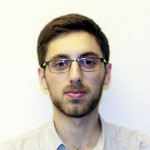Last Thursday evening, 200 students with the moniker “Next Yale” presented Yale President Peter Salovey with a list of demands. He promised a response sometime this week. As the administration ponders how to respond, it’s a good time to think about the purpose of Yale as a university, and how Next Yale’s demands relate to that purpose.
 We are here because, apart from our career aspirations, we find the pursuit of knowledge to be a worthwhile vocation. As Michael Oakshott, the British political thinker, said to his students at the London School of Economics in 1939, “‘Society,’ no doubt, will make demands upon you soon enough … [But] you have come here to get acquainted with truth and error, not with merely what is and what is not serviceable to a lunatic productivist society.”
We are here because, apart from our career aspirations, we find the pursuit of knowledge to be a worthwhile vocation. As Michael Oakshott, the British political thinker, said to his students at the London School of Economics in 1939, “‘Society,’ no doubt, will make demands upon you soon enough … [But] you have come here to get acquainted with truth and error, not with merely what is and what is not serviceable to a lunatic productivist society.”
The boundary between truth and error remains, at the very least, difficult to see.
Whether our knowledge is limited innately or simply as a function of inadequate technology, we do not know. Our knowledge of the limits of human knowledge remains itself limited. And so we will have to be content to live in a good amount of darkness.
The University, with its commitment to scholarship, to teaching and to discourse, provides a place for those most committed to groping in that darkness. And though there may be occasional discoveries, both the most important answers and the questions most worth asking in the first instance remain fundamentally hidden. As a great teacher of political philosophy Leo Strauss wrote, “As long as there is no wisdom but only the quest for wisdom, the evidence of all solutions is necessarily smaller than the evidence of the problems.”
If this is true, then the proper attitude toward one’s opinions is a good deal of doubt. And therefore the proper attitude toward the marketplace of opinions is an open and tolerant one.
For as long as we think this, we should welcome disagreement. Not merely permit it in the public square, but seek it. We should, as Strauss writes, have the “boldness implied in the resolve to regard … the average opinions as extreme opinions which are at least as likely to be wrong as the most strange.”
Many have claimed that the debate at Yale is not fundamentally about “free speech.” Strictly speaking, they are correct. None of Next Yale’s demands would censor anyone. No speech would be disallowed that is currently permitted.
But the demands, if implemented, would narrow, not widen, our discourse. The demands also evince on the part of those making them an attitude hostile toward rigorous debate. Take the request for a “bias reporting system.” For fear of formal reprimand, students and faculty would likely self-censor. While everyone should support a University culture that abhors outright bigotry — “white girls only” parties and the like — there’s a good deal of controversy about what qualifies as. Any “bias” guidelines given would probably be construed widely, to encompass views without which any discussion would be impoverished. Imagine, for instance, that a professor argued that the breakdown of the black family has exacerbated poverty in the black community. Such a person might make the argument with total sympathy toward the black community. But, like former Assistant Secretary of Labor Daniel Patrick Moynihan when he made this very argument in 1965, such a person might be accused of bias or racism, instead of presenting respectable arguments in good faith. Accusations and name-calling would replace evidence and logic as the way to win a debate.
Similarly, removing the Christakises from their positions in Silliman would send the message that challenging unpopular views is to be discouraged. Many have said their job is, to borrow a phrase, not about creating an intellectual space — it’s about creating a home here.
But a home, especially at a university, shouldn’t be sanitized from difficult conversations. Those calling for the Christakises’ removal are claiming the opposite. They are upset about or offended by — that is, they vehemently disagree with — what Erika Christakis wrote in her email. (Of course, if Christakis had expressed equally controversial views agreeing with theirs, we would be hearing nothing about the “role of the master,” but never mind.) The University should encourage such disagreement. Christakis is simply adding her views to the debate. Let others support or oppose her.
A University is a community of those who want to reason together toward knowledge. Subjugating this process to subjective definitions of “bias,” and emotions more generally, will necessarily vitiate it. In order to pursue truth all the way, all must sacrifice their intellectual and emotional “safety” — euphemisms for complacency. If in the next Yale fewer make the sacrifice — and, therefore, engage in the process — it will be a far worse Yale.
Cole Aronson is a sophomore in Calhoun College. His column runs on Mondays. Contact him at cole.aronson@yale.edu .







